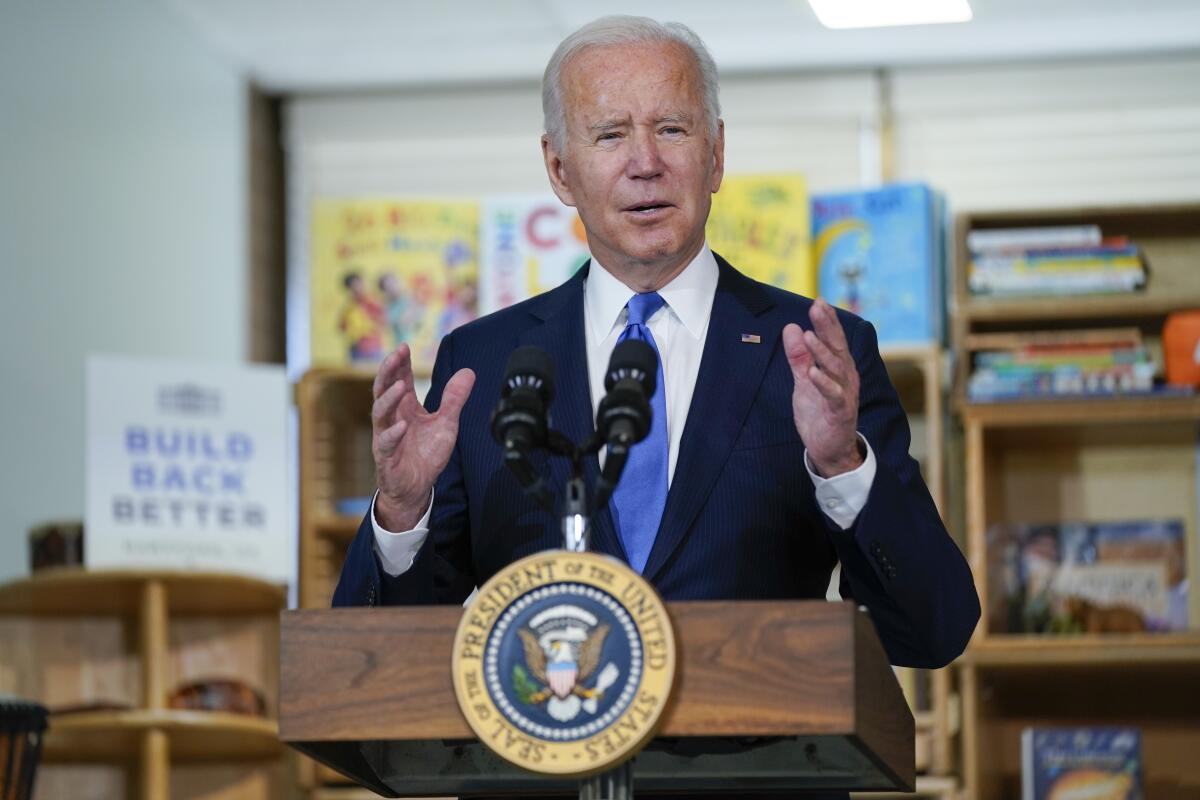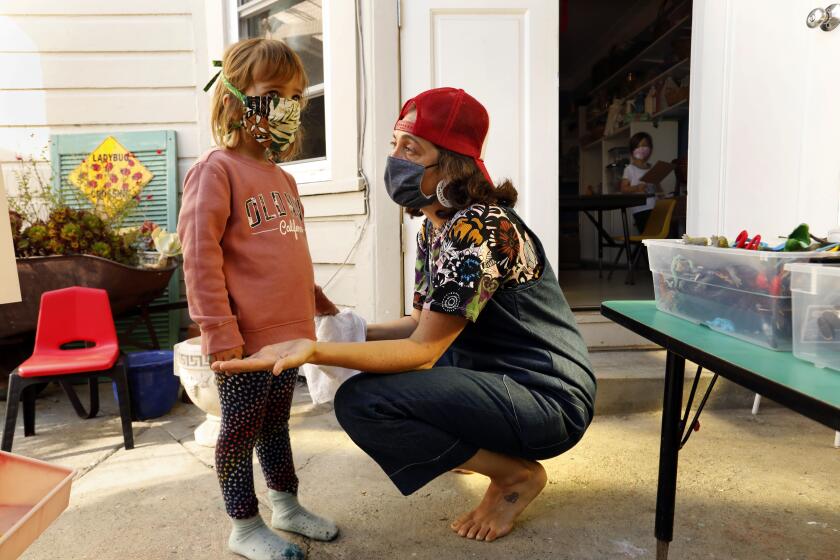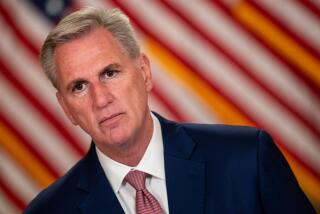Biden touts child-care provisions in Democratic spending bill

- Share via
WASHINGTON — President Biden on Friday implored Congress to pass his party’s major spending bill, saying it would expand access to child care and make the U.S. more competitive in the global economy.
“Millions of American parents, especially moms, can’t be part of the workforce because they can’t afford the cost of child care,” Biden said Friday in a library at the Capitol Child Development Center in Hartford, Conn.
The president noted that the issue was personal: After his wife died in a car crash in the 1970s, he struggled to afford child care on his $42,500 Senate salary.
Democrats are proposing to decrease the cost of child care and raise wages of day-care workers in a multi-trillion-dollar spending package that has sparked a fight between the party’s progressives and moderates over its cost and scope.
Party leaders are seeking to pass the measure — which would fund a long list of social, medical and environmental programs — through a process known as reconciliation. That process requires a simple majority in the evenly split Senate to pass measures directly tied to the budget. If independents join all Democrats, Vice President Kamala Harris can break the tie and send the bill to Biden’s desk.
Congress is discussing a mass overhaul of child care in the United States, including who should pay for it.
Two Democrats — Sens. Joe Manchin III of West Virginia and Kyrsten Sinema of Arizona — have balked at the proposed $3.5-trillion price tag and threatened to withhold votes unless the package is trimmed. In seeking to reduce its cost, Democrats are debating whether to fund a few programs with long life spans or a larger number of initiatives over just a few years. They are also deciding whether to target programs to those most in need or offer them to a broader section of Americans.
Republicans are unified in their opposition to the package, saying it costs too much.
Biden acknowledged Friday that the package would fall below its original price tag but said he was optimistic it would pass.
“We’ll get less than that,” Biden said. “But we’re going to get it.
“Too many folks in Washington still don’t realize it’s not enough just to invest in our physical infrastructure,” Biden said. “We also have to invest in our people.”
House Speaker Nancy Pelosi (D-San Francisco) said Tuesday that the length of several major programs would have to shrink in order to bring the price tag below $3.5 trillion.
“I’m very disappointed that we’re not going with the original $3.5 trillion, which was very transformative,” Pelosi told reporters.
Pelosi can lose only three votes in the House, where progressives have pushed party leaders for more robust spending on an array of social programs.
Vice President Kamala Harris speaks at the U.S. Treasury, unveiling a report detailing the problems facing the child-care sector, and how the Democrats’ spending bill will help improve access to child care, particularly for low-income workers.
Proposals that would reduce the cost of child care and boost the pay of child-care workers are politically popular and among the spending bill’s least controversial provisions.
If the current proposals are adopted, the average family could save about $15,000 a year on child-care costs.
Through an array of subsidies and by expanding the child tax credit, which is set to lapse at the end of the tax year, most families would not have to spend more than 7% of their income on child care, according to a Treasury report. The average family with at least one child younger than 5 spends about 13% of its income on child care, the report said.
Child-care workers’ wages would also be raised. In 2020, a child-care worker earned on average $12.24 an hour, according to the Treasury report. The national living wage in 2019 for a single adult was $16.54 an hour, according to MIT’s living wage calculator. More than 15% of child-care workers live below the poverty line and half rely on public assistance programs in 41 states, according to the Treasury report.
More to Read
Get the L.A. Times Politics newsletter
Deeply reported insights into legislation, politics and policy from Sacramento, Washington and beyond. In your inbox twice per week.
You may occasionally receive promotional content from the Los Angeles Times.













